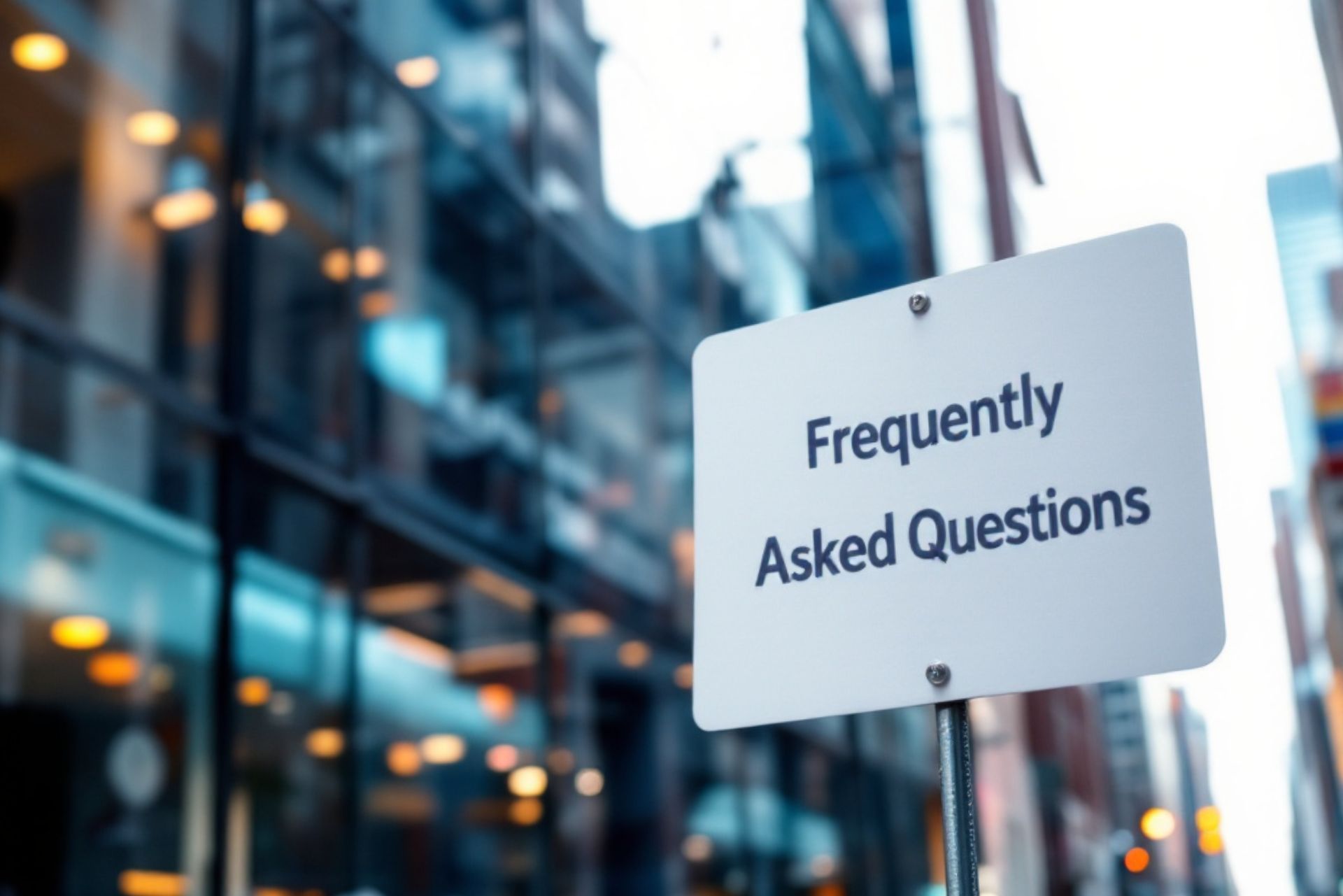New York Commercial Property Insurance
See How We're Different:
or Call Us: 212-425-8150

Most Common Business Policies
Index
Understanding Commercial Property Insurance
Key Features of New York Commercial Property Insurance
The Cost of Commercial Property Insurance in New York
How to Choose the Right Commercial Property Insurance in New York
The Claims Process for Commercial Property Insurance
Frequently Asked Questions about New York Commercial Property Insurance
Contact Us
For business owners in New York, understanding commercial property insurance is crucial for protecting assets. This comprehensive guide aims to delve into the intricacies of commercial property insurance, highlighting its importance, costs, features, and processes to help you make informed decisions.
Understanding Commercial Property Insurance
Commercial property insurance is a type of insurance designed to protect businesses from financial losses due to damage or destruction of property. This includes buildings, equipment, inventory, and other physical assets vital for operations. In a bustling state like New York, where business risks are prominent, this insurance serves as a safety net against various perils.
Definition and Importance of Commercial Property Insurance
At its core, commercial property insurance provides coverage for physical property and equipment owned by a business. This insurance enables business owners to recover financially after a loss. For instance, a fire, theft, or natural disaster can have catastrophic financial consequences, but with the right insurance, a business can be restored to operational status swiftly.
The importance of commercial property insurance cannot be overstated. It safeguards not just the physical assets but also the future of your business. Without adequate coverage, a significant loss could lead to financial ruin, making it imperative for business owners to invest in this form of protection. Furthermore, many landlords and lenders require businesses to carry commercial property insurance as a condition of leasing or financing, underscoring its critical role in maintaining business viability and credibility.
Types of Commercial Property Insurance
There are several types of commercial property insurance available to meet different business needs. The most common types include:
- All-Risk Policies: These policies cover a wide range of risks unless explicitly excluded.
- Named Peril Policies: They cover only the risks specifically listed in the policy.
- Business Owner's Policy (BOP): This combines various coverages, including property insurance and liability coverage, designed for small to medium-sized businesses.
- Specialized Policies: Certain industries may require specialized insurance tailored to specific risks, such as construction or manufacturing.
In addition to these standard options, businesses may also consider endorsements or riders that can enhance their coverage. For example, adding coverage for business interruption can be crucial, as it compensates for lost income during periods when a business cannot operate due to a covered event. Similarly, equipment breakdown coverage can protect against losses resulting from the failure of machinery, which is especially important for manufacturing and production-oriented businesses. Understanding these various types of policies and their implications can empower business owners to make informed decisions tailored to their unique operational risks and financial goals.

Key Features of New York Commercial Property Insurance
When investing in commercial property insurance in New York, understanding its key features is essential. These features provide insight into what is covered and help you make an informed choice that aligns with your business's unique needs. Given the dynamic nature of New York's economy and its diverse range of businesses, having a solid grasp of these elements can significantly impact your risk management strategy.
Coverage Options in New York
New York's commercial property insurance offers a variety of coverage options to suit diverse businesses. The main coverage options include:
- Building Coverage: Protects the structure itself from damage caused by disasters.
- Contents Coverage: Covers the business's personal property, such as furniture and equipment.
- Business Interruption Insurance: Provides income replacement if operations are halted due to a covered event.
- Equipment Breakdown Coverage: Protects against the costs associated with repairing or replacing damaged equipment.
In addition to these core options, many insurers in New York offer customizable add-ons that can enhance your policy. For instance, you might consider adding cyber liability coverage to protect against data breaches, which is increasingly important in today's digital landscape. Furthermore, some policies may include coverage for outdoor signs and fixtures, which can be crucial for businesses that rely on visibility and branding.
Exclusions and Limitations
Even with extensive coverage, it's essential to be aware of certain exclusions and limitations. Typical exclusions might include:
- Damage from flooding or earthquakes typically requires separate policy coverage.
- Wear and tear or maintenance-related issues are not covered.
- Certain types of mold damage might fall outside standard coverage options.
Understanding these limitations ensures you have a realistic view of your coverage and can seek additional policies if necessary. Moreover, it is advisable to regularly review your policy to ensure it remains aligned with your business's evolving needs. For example, if you expand your operations or acquire new equipment, you may need to adjust your coverage limits to adequately protect your assets. Consulting with an insurance professional can provide valuable insights into potential gaps in your coverage and help you navigate the complexities of commercial property insurance in New York.
The Cost of Commercial Property Insurance in New York
The cost of commercial property insurance can vary significantly depending on several factors, including your business location, the size of your premises, and the type of coverage you choose. Knowing what affects these costs can help you plan your budget effectively. In New York, where the commercial landscape is diverse and dynamic, understanding these nuances becomes even more critical for business owners aiming to protect their investments.
Factors Influencing the Cost
Several key factors influence the premium rates for commercial property insurance in New York, including:
- Location: Areas prone to natural disasters may face higher premiums. For instance, properties situated in flood zones or near the coastline may require additional coverage, significantly impacting overall costs.
- Building Features: Age, construction type, and safety features like sprinklers can impact costs. Newer buildings often benefit from modern construction techniques that may reduce risk, while older structures might necessitate more comprehensive coverage due to potential vulnerabilities.
- Business Type: Certain industries carry higher risks, which can lead to elevated premiums. For example, businesses dealing with hazardous materials or those that operate heavy machinery may find themselves facing steeper insurance costs compared to retail establishments.
- Claims History: A history of claims may result in higher rates as insurers perceive higher risk. This aspect emphasizes the importance of risk management and loss prevention strategies for business owners.
Ways to Lower Your Insurance Premium
While commercial property insurance is essential, there are strategies to lower your premium. Business owners can consider the following:
- Bundling Policies: Purchasing multiple types of insurance from the same provider can result in discounts. This not only simplifies management but can also enhance your overall coverage by ensuring that all policies are aligned.
- Increasing Deductibles: Higher deductibles can lower monthly premiums; however, this means more out-of-pocket costs during claims. It's crucial to assess your financial situation to determine a deductible level that balances affordability with risk tolerance.
- Implementing Safety Measures: Enhancing the security of your property with alarms and fire suppression systems can lead to lower rates. Additionally, regular maintenance and inspections can prevent issues that might lead to claims, further contributing to potential savings.
Moreover, engaging with a knowledgeable insurance broker can provide tailored advice and help navigate the complexities of commercial property insurance. They can assist in identifying specific risks associated with your business and recommend coverage options that align with your operational needs. Understanding the nuances of your industry and the unique challenges you face will empower you to make informed decisions that not only protect your assets but also optimize your insurance spending.
Lastly, staying informed about changes in local regulations and market trends can also play a significant role in managing insurance costs. For example, if new building codes are introduced that require enhanced safety features, proactively upgrading your property could not only mitigate risk but also qualify you for lower premiums. Regularly reviewing your policy and shopping around for competitive quotes ensures that you are not only compliant but also getting the best value for your investment.
How to Choose the Right Commercial Property Insurance in New York
Choosing the right commercial property insurance is a crucial aspect of safeguarding your business. A thorough assessment and comparison can yield the best policy tailored to your needs.
Assessing Your Business Needs
The first step in choosing the right insurance is to assess your business's unique needs. Consider the value of your property and assets, how much of a financial risk you are willing to take, and any potential threats specific to your industry.
Creating an inventory of all your business assets, along with their values, will provide a clearer picture of your insurance requirements. Furthermore, understanding the risks associated with your location can help tailor your coverage objectives more accurately. For instance, if your business is located in an area prone to flooding or earthquakes, you may need to consider additional coverage options that specifically address these risks. Additionally, evaluating your business's operational needs, such as equipment and inventory, can further refine your insurance strategy, ensuring that you are adequately protected against unforeseen events.
Comparing Different Insurance Providers
Once you have an understanding of your needs, the next step is comparing various insurance providers. Here are some tips:
- Research: Look for providers with a strong reputation and positive customer reviews.
- Get Multiple Quotes: This allows for side-by-side comparisons of premiums and coverage options.
- Ask Questions: Don't hesitate to inquire about policy specifics, exclusions, and claim processes.
In addition to these tips, consider the financial stability of the insurance companies you are evaluating. Checking their ratings from independent agencies can provide insight into their ability to pay claims in the event of a disaster. Furthermore, it may be beneficial to seek out providers that specialize in your industry, as they often have tailored policies that address specific risks and challenges you may face. Engaging with an insurance broker can also streamline this process, as they can offer expert advice and help you navigate the complexities of commercial property insurance.

The Claims Process for Commercial Property Insurance
Filing a claim can be a daunting task, but understanding the claims process can ease some of that burden. Each insurance provider may have variations in their claims procedures, but the core steps remain similar.
Steps to Filing a Claim
The steps for filing a commercial property insurance claim typically include:
- Notify Your Insurance Company: Contact them as soon as the damage occurs.
- Document the Damage: Take photographs and inventory what was lost or damaged.
- Fill Out Claim Forms: Complete the necessary paperwork required by your insurer.
- Meet with the Adjuster: An insurance adjuster will assess the damage and determine the payout.
Understanding the Settlement Process
Once your claim is filed, understanding the settlement process is essential for managing expectations. After assessing the damage, the insurer will provide a settlement offer based on the policy's terms. At this stage, businesses have the right to negotiate if they believe the settlement is insufficient.
It’s vital to review the settlement carefully and ensure it reflects the actual losses incurred. In cases of disputes, businesses can seek legal advice to help navigate the complexities of insurance negotiations. Additionally, it may be beneficial to keep a detailed record of all communications with the insurer, including dates, times, and the names of representatives spoken to. This documentation can prove invaluable should any discrepancies arise during the negotiation process.
Furthermore, understanding the specific language and terms used in your policy can greatly influence the outcome of your claim. Policies often contain clauses that may limit coverage or dictate specific procedures for filing claims. Familiarizing yourself with these details before a loss occurs can empower you to make informed decisions and advocate effectively for your business. Engaging an insurance broker or consultant who specializes in commercial property insurance can also provide insights into best practices for claims management and ensure that your interests are well-represented throughout the process.
Frequently Asked Questions about New York Commercial Property Insurance
As a business owner, you likely have many questions regarding commercial property insurance. Below are some frequently asked questions to clarify common concerns.
What Does Commercial Property Insurance Cover?
Commercial property insurance typically covers physical damages to your business property, loss of inventory, and business interruption. Additionally, it may cover theft, vandalism, and certain natural disasters, depending on the policy specifics. This type of insurance can also extend to equipment breakdown, which is crucial for businesses that rely heavily on machinery or technology. For instance, if a critical piece of equipment fails, leading to a halt in operations, your policy can help cover the repair costs and any lost income during the downtime.
Is Commercial Property Insurance Mandatory in New York?
While commercial property insurance is not legally mandated in New York, having it is highly encouraged for the protection it offers. Depending on your lease agreement, landlords may require tenants to hold insurance coverage. Furthermore, securing financing for your business might necessitate proof of insurance, making it a wise investment. It's worth noting that even if not required, many businesses opt for this coverage to mitigate risks associated with property damage or loss. In a bustling city like New York, where the potential for natural disasters such as floods or hurricanes exists, having robust insurance can provide peace of mind and financial security.
Moreover, understanding the intricacies of commercial property insurance can help you tailor your policy to fit your specific business needs. For example, businesses located in high-risk areas may want to consider additional coverage options, such as flood insurance or extended coverage for specific types of equipment. This proactive approach not only safeguards your assets but also enhances your credibility with clients and partners, showing that you are prepared for any eventuality. By investing time in understanding your insurance options, you can ensure that your business remains resilient, no matter what challenges arise.
